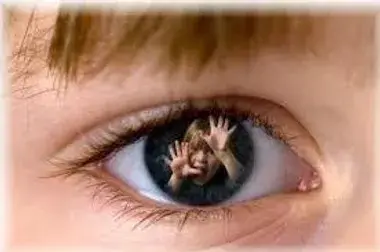by Stephanie Harris, M.A., LCPC / in Active, Adult Relationships, Articles, Blog, Emotional Health, Family Relationships, Parents, Self Improvement, Trauma / tags: Family Relationships, Trauma
Families can be a blessing. They can offer you unceasing love and a safe place to come home after contending with a world that’s in part marked by tragedy and malevolence. Families should offer this, and I hope most families do offer this. However, some people are born into families that do not offer the love, safety, and security that the word “family” would imply.
Families of origin are tricky because people do not choose them. They do not choose their mother, father, siblings, grandparents, foster parents, or the people with whom they spend their developmental years. It is of course my hope that people’s experiences in their families of origin families are loving and supportive. However, there are instances when that does not happen and the attention and care one would require from a family is absent. Moreover abuse, neglect, or abandonment may be present instead. If this is someone’s experience, then it would stand to reason that his or her perception of “family” may not be very positive. The closeness that the word “family” implies would seem incongruent to people coming from a family of origin that neglects, abuses, or traumatizes them. If this is their understanding of “family,” then how could they expect that others outside of their “family” could treat them any better?
Mistreatment in one’s family of origin can lead to attachment issues later in life. Psychologist John Bowlby researched the importance of children’s caregivers responding to their needs in a caring and supportive way. Without this sensitivity, children are at risk for developing insecure attachment styles which can lead to feelings of mistrust, fear, and avoidance towards others. This will likely bring significant challenges to the children’s eventual relationships with others later in life.
When people grow up in traumatic familial environments, it makes me question how strong a genetic bond may really be between children and their parents. I’m sure most people would say that of course there is a naturally strong attachment between children and their biological parents, and I don’t necessarily disagree with this. I only wonder how bonded parents could be to their biological children if they are neglecting or abusing them.
So, what is a person to do when their biological family of origin mistreats them? Are they meant to grow up without a semblance of a family? They could try, but I’m sure they would find it incredibly difficult. People are not meant to live without close connections. We need to feel loved, supported, and bonded to people we care about in order to live well. Therefore, simply living with the family that one was arbitrarily assigned to at birth is not the correct answer to me.
My solution to this is the idea of a “new family” – one that a person voluntarily selects. If people were born into an unloving biological family, their sense of family does not have to begin and end there. They can develop a new family. These could be friends, coworkers, mentors, or romantic partners or other people they meet later in life with whom they develop an attachment. They can choose whom they invest in by who treats them well and whom they feel supported by.
If people are able to individually define who and what their family entails, I believe they are much more able to live with a sense of safety and security in their lives, maybe just as much as people who are born into nurturing families from the start. To me, “family” is whom we love, whom we devote ourselves to, and whom we spend our time with. These experiences of closeness to and acceptance by others are essential to people’s health. Humans are social beings and are able to find family any way they can. This brings me hope that even people who are born into traumatic, neglectful, or abusive families do not have to continue having these unloving experiences with others later in their life. They will get their family. They may just have to make one.
About the Author: Stephanie Harris, M.A., LCPC



